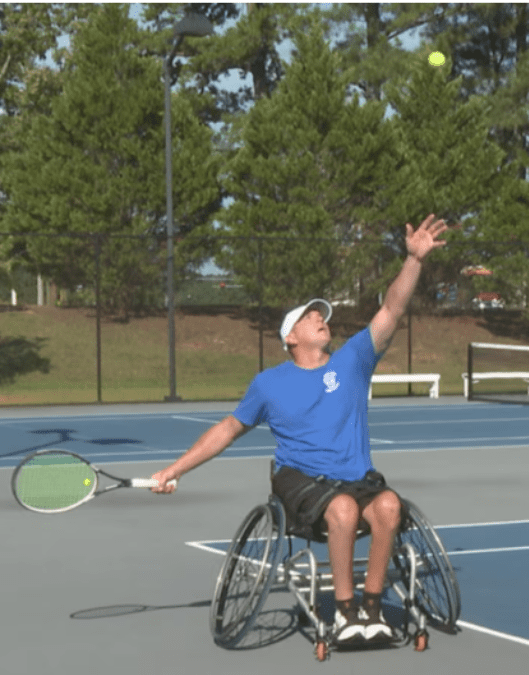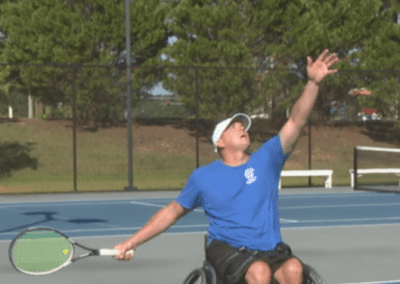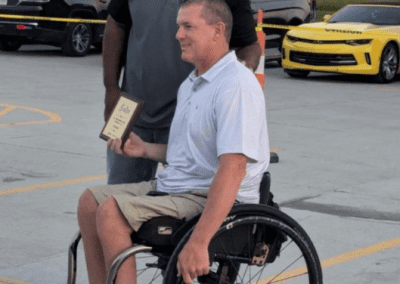When Scott Therrell was 19 years old, a car accident left him paralyzed from the waist down. At the time, the future felt uncertain. What he could not have imagined then was that the injury would eventually open the door to a life filled with sports, travel, and inspiration.
Now in his adult years, Therrell spends much of his time on the road competing in wheelchair softball and wheelchair tennis, turning what could have been a setback into a source of strength and joy.
“Sports, I mean, it’s like the biggest blessing to me, because I love this kind of stuff, and yet it also keeps me healthy. Keeps me active. So, you don’t deal with a lot of the complications from a disability, because you’re staying healthy. You’re always moving. You’re always doing something, and that helps a lot,” Therrell said.
Tennis is his latest pursuit. He only picked up the sport last year, yet he is already ranked first in his class. The success still surprises him at times, but he views it as a reminder of the opportunities that can follow hardship.
“Just being blessed to be able to do this kind of stuff. You know, when you get injured or whatever, and you’re in the hospital, you think, ‘Man, what am I gonna do now?’ And then now playing basketball, tennis, softball, traveling, and staying busy like I do, you don’t have time to think about being disabled. You’re too busy living your life. So, I’d say, you know, there’s a lot out there for you, available to you that a lot of people don’t know about,” he said.
This year alone, Therrell has played in eight tournaments across the country, earning wins in Dallas, Houston, St. Louis, and Montgomery. His work ethic and drive have not gone unnoticed by those around him.
Pete Mazzella, Director of Racket Sports at Northeast Park Tennis Center, has watched Therrell’s dedication closely. “Well, one thing that impresses me about Scott is his attitude. He’s got the best attitude and talks all the time about how blessed he is. Scott works harder than probably any tennis player I work with. The most common problem I have is players not putting in enough, and sometimes Scott puts in too much. He’ll be out here four or five hours serving, on the ball machine, hitting with me a little bit, and sometimes I think he overdoes it a little bit, but that’s a great quality to have. He’s just trying to improve and get better,” Mazzella said.
Therrell’s message to others living with disabilities is simple: there is more out there than they might realize. He admits he regrets waiting so long to embrace sports after his accident.
“There’s just a lot out there that people can do these days that you really don’t think about. I waited 20 years before I started playing wheelchair sports, and I wish I’d started a long time ago,” he said.
For Therrell, every match, every game, and every practice session is more than competition. It is proof that life after tragedy can still be rich, active, and deeply rewarding.



